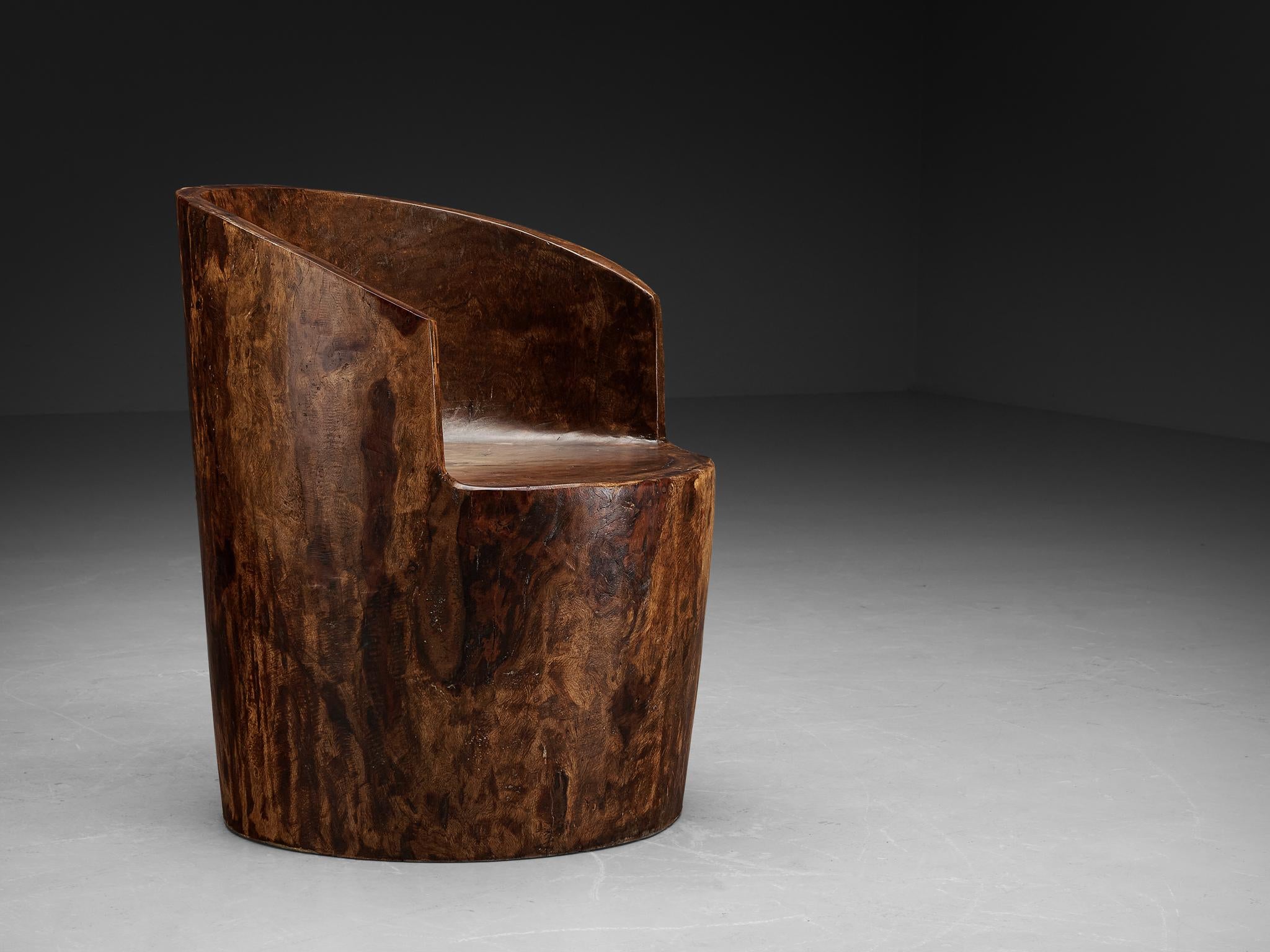
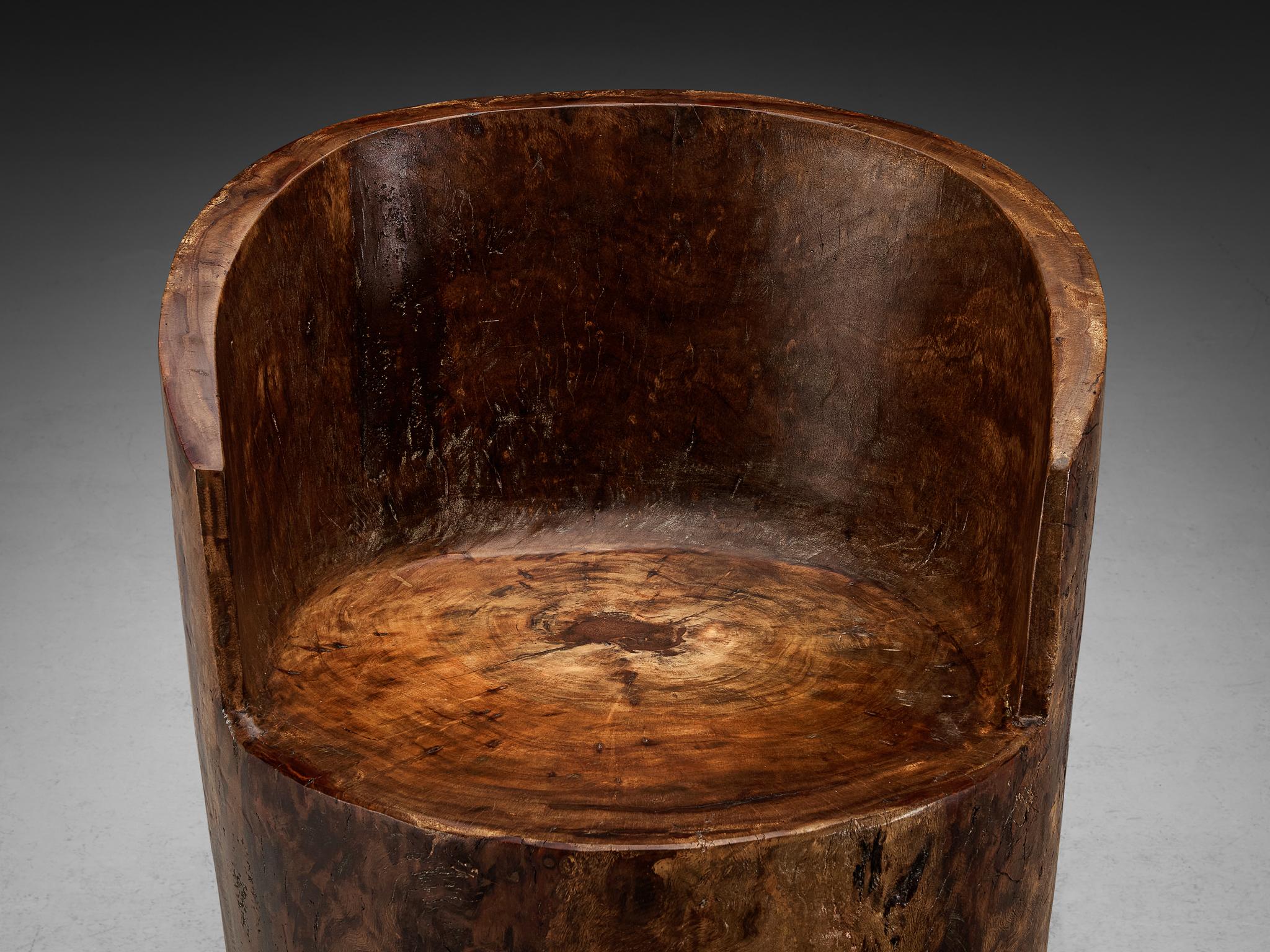
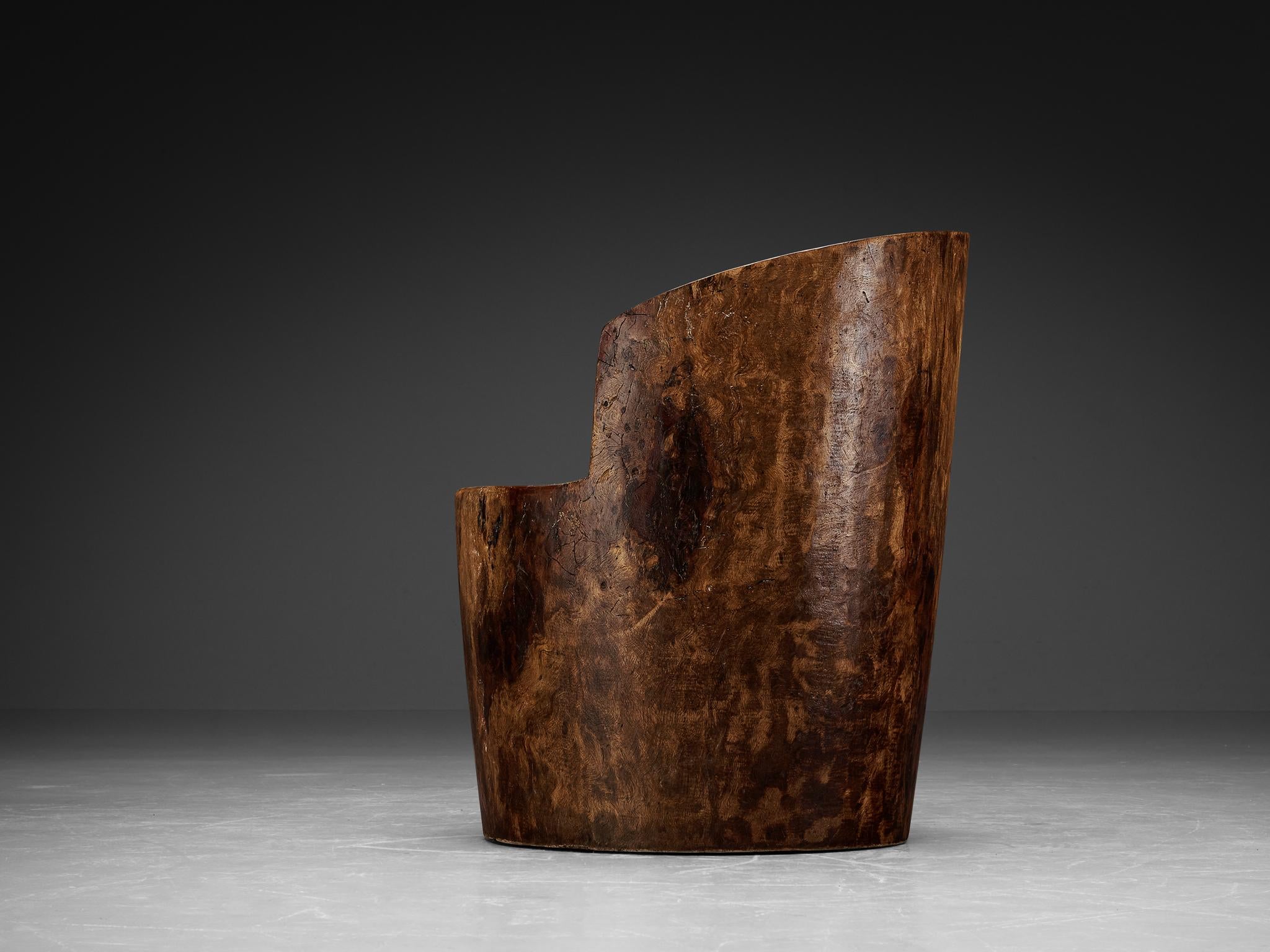
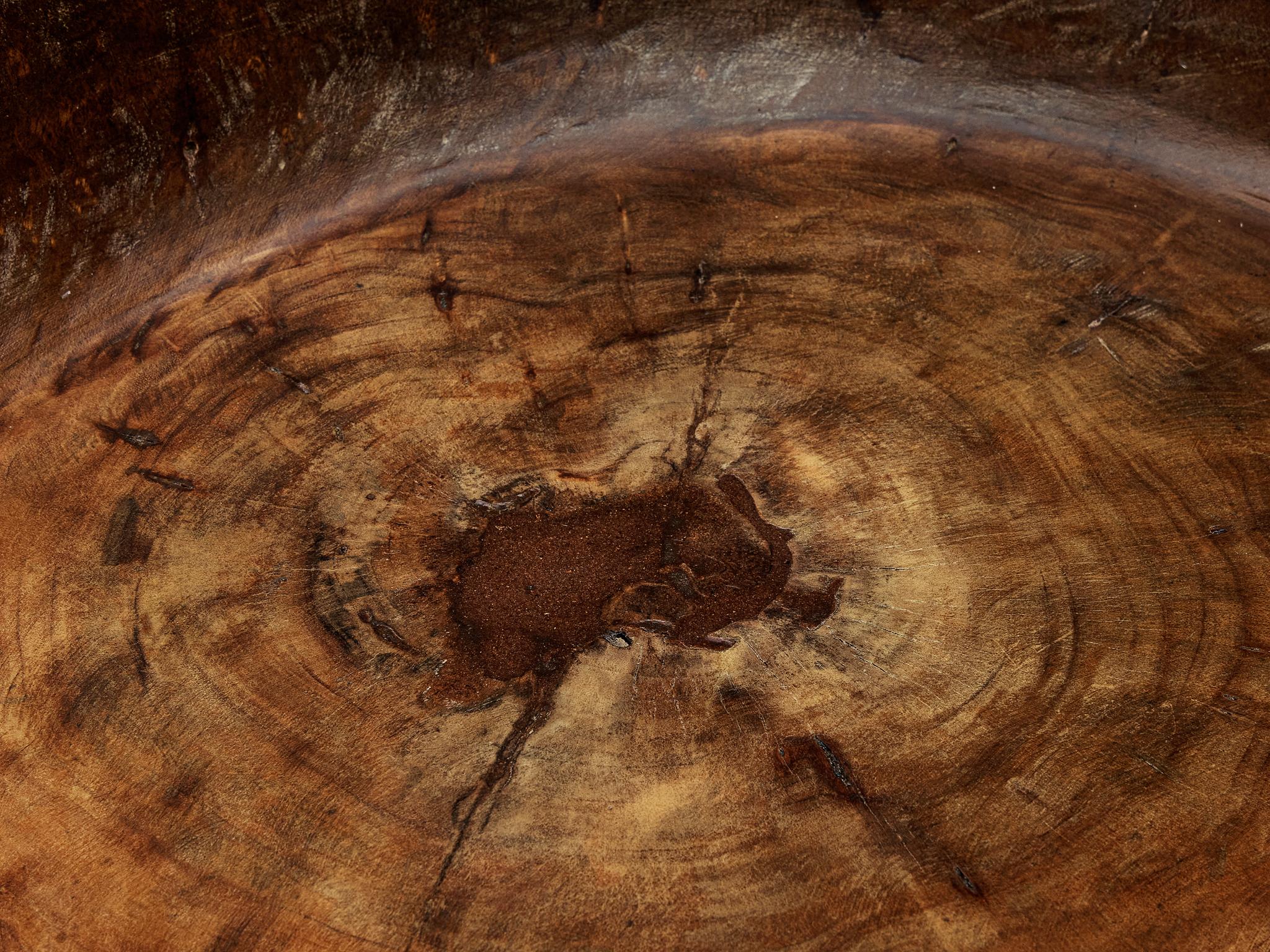
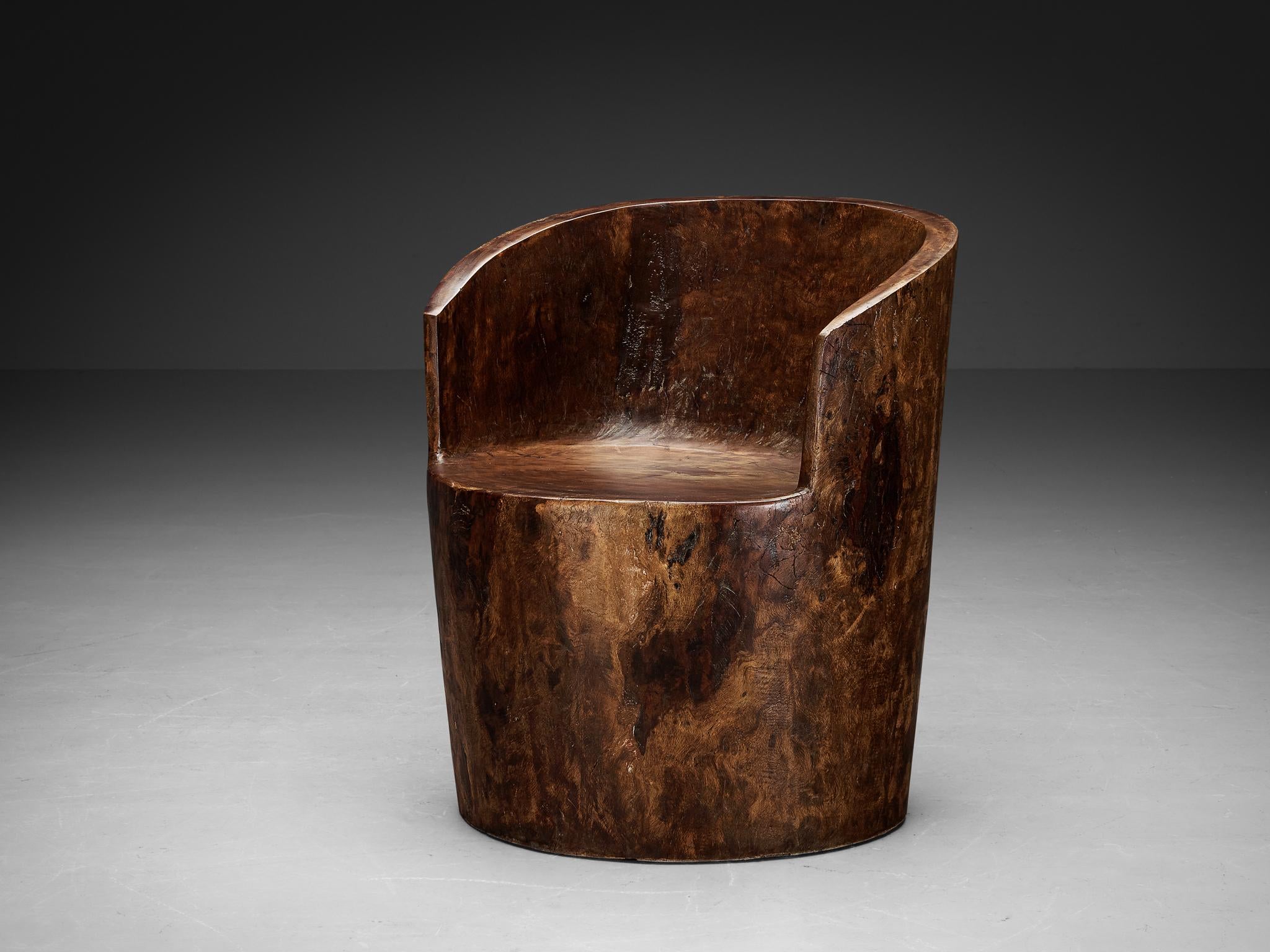
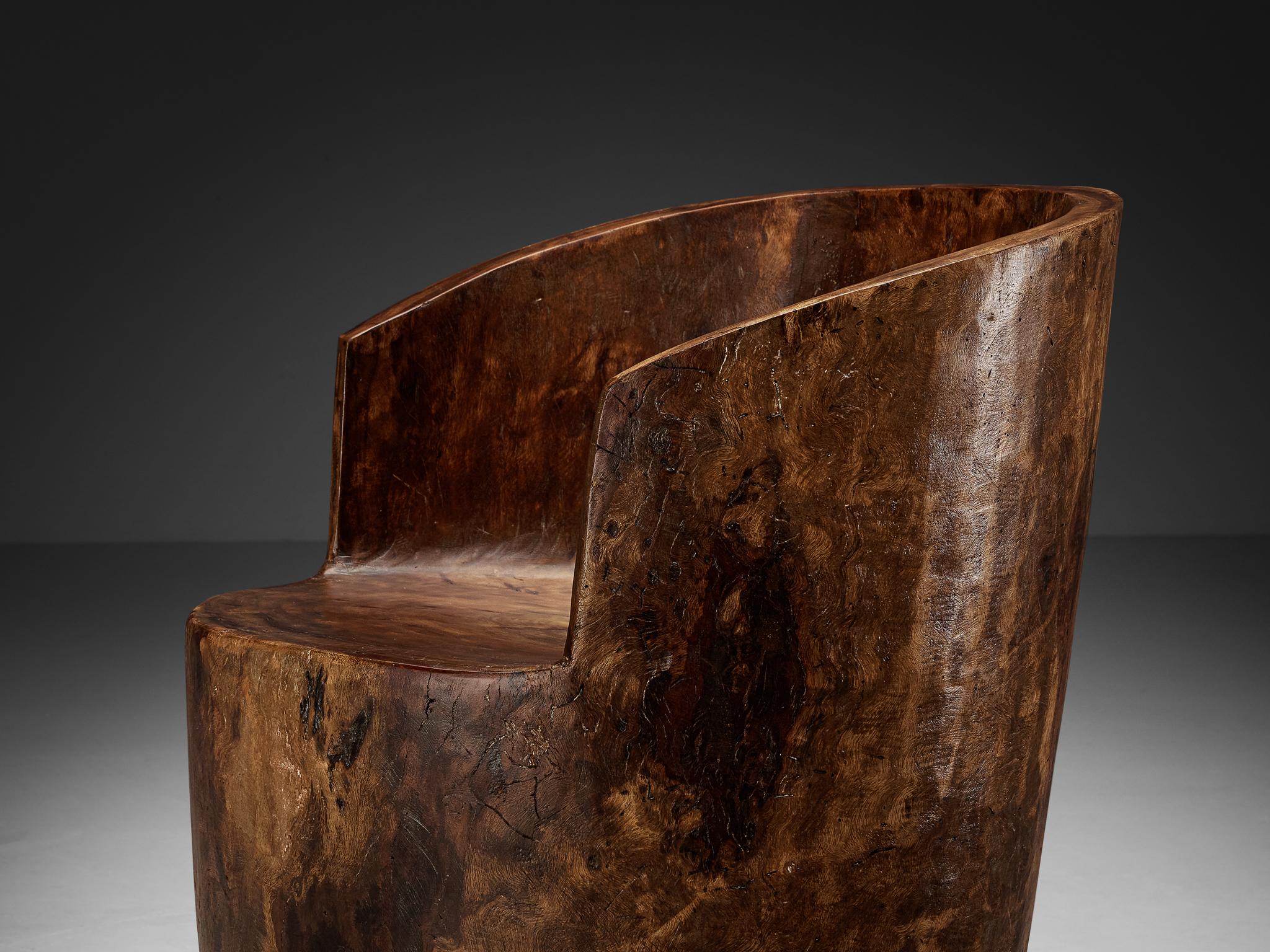
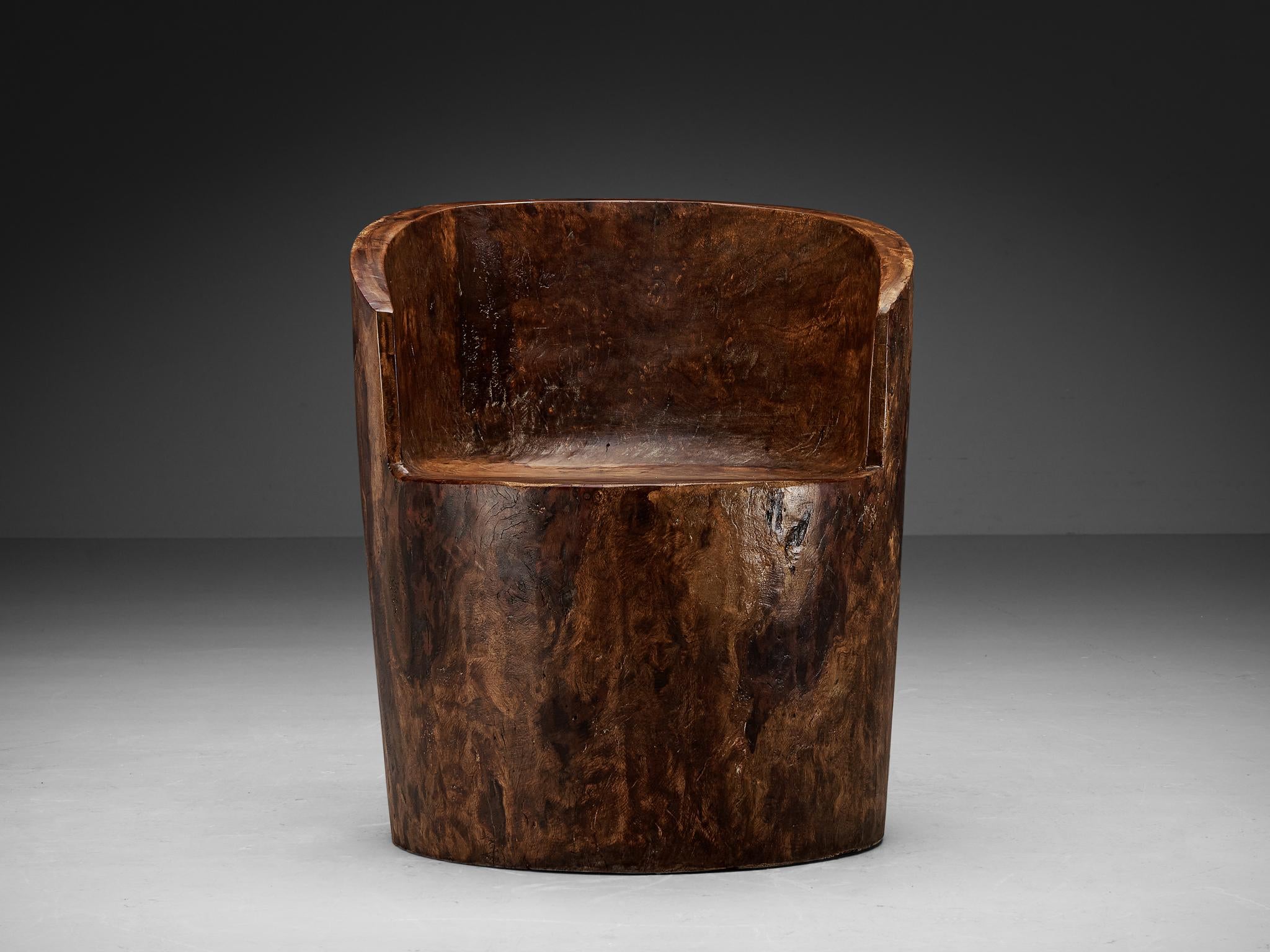
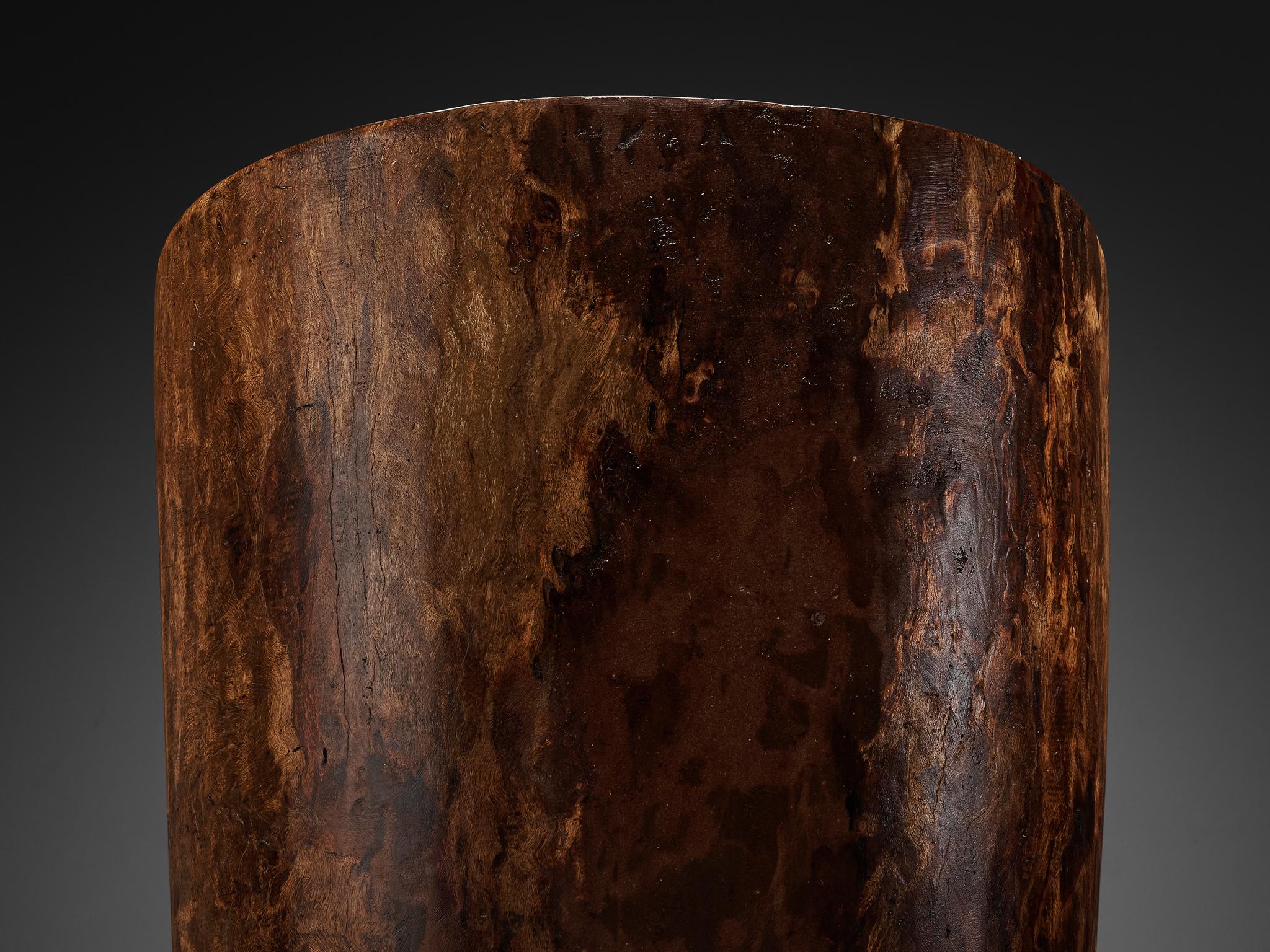
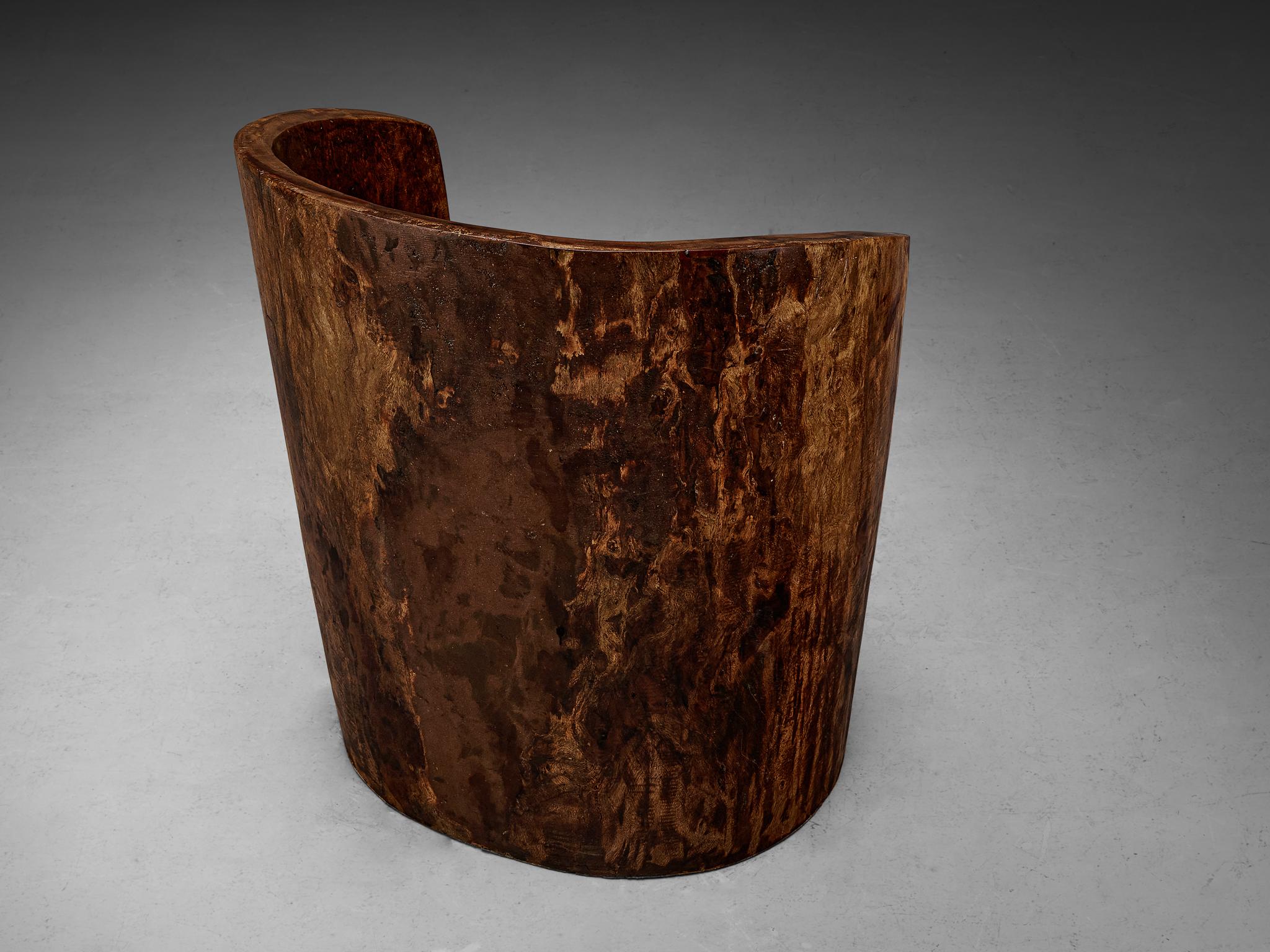
José Zanine Caldas Hand-Carved ‘Pilão’ Chair in Brazilian Hardwood
José Zanine Caldas, hand-sculpted chair, model ‘Pilão’, Brazilian hardwood, Brazil, 1975
This exquisite hand-carved chair exemplifies the core principles embodied by José Zanine Caldas: a profound love for nature, particularly wood. Crafted with meticulous attention to detail in 1975, the Pilão design is made from a single piece of wood. The chair features a cylindrical-shaped framework with the curvaceous backrest expertly hollowed that seamlessly flows in a diagonal manner towards the front. The wood's captivating surface displays a visually stunning array of various brown hues, showcasing the pure beauty of nature. Upon returning to his native Bahia later in his career, Zanine Caldas drew inspiration from local craftspeople who skillfully carved boats and furniture from fallen trees. This influence led him to explore the art of chiseling and carving large, sculptural pieces of furniture, exemplified by the present chair. A pioneer in the field of forest preservation and ecology, he wrote extensively about his connection to the forest and attempted to either use salvaged wood or to plant a new tree for each one he used in one of his projects. His body of work stands as a testament to the intrinsic beauty of natural wood, emphasizing its significance as a material.
José Zanine Caldas (1919-2001) was born in Belmonte, Brazil. His designs are known for their raw, natural and sculptural qualities. Caldas was an autodidact and started his career as designer in the construction industry. He worked as a model builder for designers and architects including Oscar Niemeyer. In 1948 he founded the company Moveis Artisticos Z, and there he produced semi-mass produced plywood furniture. But already two years later, he decided to leave the company and return to his home state Bahia. Later he began to work with local materials, and combined the colonial aesthetic with the new modernist style. It was through his experience and development in style that is known to stay close to the truth of the material and that abandoned the rigid rules and objectivism of the Modernist era. Caldas held a strong believe that man should live in harmony with nature.
Most of Caldas' contemporary colleagues graduated from art schools or architectural institutes. Caldas, however, developed his own style and methods. He decided to leave Bahia and move to Rio de Janeiro. Here he opened his own studio, where he developed architectural models without having been trained as an architect himself. Famous colleagues such as Lucio Costa and Oscar Niemeyer admired his methods, skills and ingenuity.
José Zanine Caldas was particularly interested in other cultures and peoples. During his travels through Africa and Asia, he was impressed by the local customs in the places he visited. This made him realize that people who live in harmony with nature provide for themselves in a similar way everywhere in the world. The human quest for unity with nature became the main theme in his work.
He still felt drawn to his native region of Bahia and Caldas moved back in 1968. There he was inspired by the local craftsmen who cut boats out of fallen trees. Caldas began to apply this method to his furniture art. He started chiseling and carving wooden sculptural works and furniture. These handmade objects, which are all unique due to his working method, formed the focus and the pinnacle of Zanine Caldas' further career.
The fact that Caldas was very committed to his environment, and in particular the Brazilian landscape, always proved to be a guiding principle in his choices. He saw the toll agriculture and forest clearing demanded on the local nature. An advocate of rainforest conservation, Caldas founded the Foundation Center for the Development of the Application of Brazilian Woods. With this foundation Caldas fought against the destruction of the rainforests in Brazil by, among other things, freeing up money for education.
For his handmade furniture, he also made the radical choice to use only found wood, just like the local craftsmen. Caldas only used wood from trees that had died or fallen naturally. The furniture that Caldas made in this way is called 'Móveis Denúncia', in other words: protest furniture.
VAT within the EU: When buying or delivering an item within the EU, VAT usually applies and will be added.
Choose options









Product Details